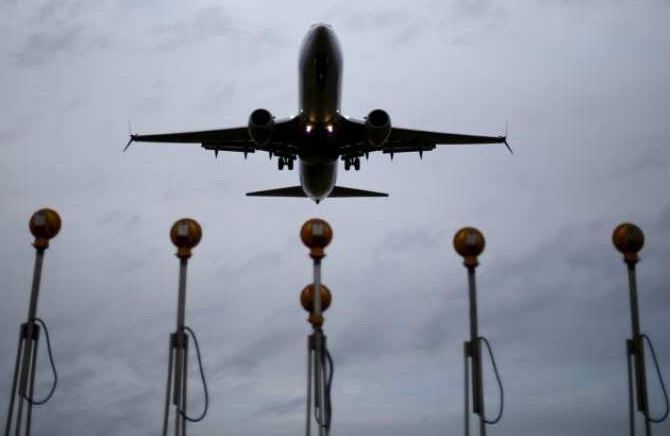 | « Back to article | Print this article |
Airports levy charges such as FTC, infrastructure charge, and into-plane charges on sale of jet fuel. The levy is passed through to airlines, pushing up costs.

The fuel bill of airlines is set to reduce as the civil aviation ministry has ordered discontinuation of the fuel throughput charge (FTC) collected by airports from oil companies.
People in the know said the move will help airlines save close to Rs 500 crore per year.
Fuel is one of the highest cost components for airlines.
Airports levy charges such as FTC, infrastructure charge, and into-plane charges on sale of jet fuel.
The levy is passed through to airlines, pushing up costs.
FTC varies from airport to airport.
At Mumbai airport, Rs 1,000 is levied per kilolitre of jet fuel.
A kilolitre of ATF is priced at Rs 64,529 in Mumbai.
In addition, various taxes such as GST and VAT are levied on the FTC, pushing up the cost.
“For every Rs 100, tax components including GST and VAT push up the cost by Rs 60.
"Airports are not providing any kind of service in return.
"Why should we pay for that? Abolishing throughput charges is a big impetus at a time when oil prices are rising,” said the CEO of a private airline.
“It was seen that the global best practices at airports avoid levying a double charge by way of land rental on fuel suppliers for the use of the land at the airport, and a market access or concession fee for providing commercial opportunity when there is no underlying tangible service being rendered by the airport operator,” the government said in the circular.
The move will negatively impact cash flows of airports in the near term, but operators will get compensated during tariff revision.
FTC has been a source of dispute between airlines and airport operators for 10 years now.
Global carriers Emirates and Air France, too, had opposed the charges.
Airlines have opposed the levy and urged the government to scrap it on the lines of Europe.
Airlines have also complained of double taxation as both airports and oil companies collect tax in the process.
“IATA is opposed to airports levying charges on aviation fuel services that are not cost-related and justified,” wrote the global lobbying firm for airlines in its letter to the government.
The civil aviation ministry had set up a committee in 2019 to rationalise taxes on jet fuel, which are among the highest in the region.
On their part, airport operators had asked the government not abolish FTC due to an ongoing litigation.
The ministry said the FTC, in its all its manifestations, shall be discontinued at airports, airstrips, and heliports with immediate effect.
The ministry said airports will be compensated during tariff fixation, and charges will be recalibrated factoring in the revenue loss.
“The order will bring immediate relief to airlines but we will have to see what impact it causes on overall airport charges,” said an airline executive.
The Mumbai and Delhi airports have challenged the Airport Economic Regulatory Authority’s decision to treat FTC as aeronautical charges.
The airports contend that these are non-aeronautical in nature and should be outside the regulatory tariff fixation process.
Photograph: Reuters